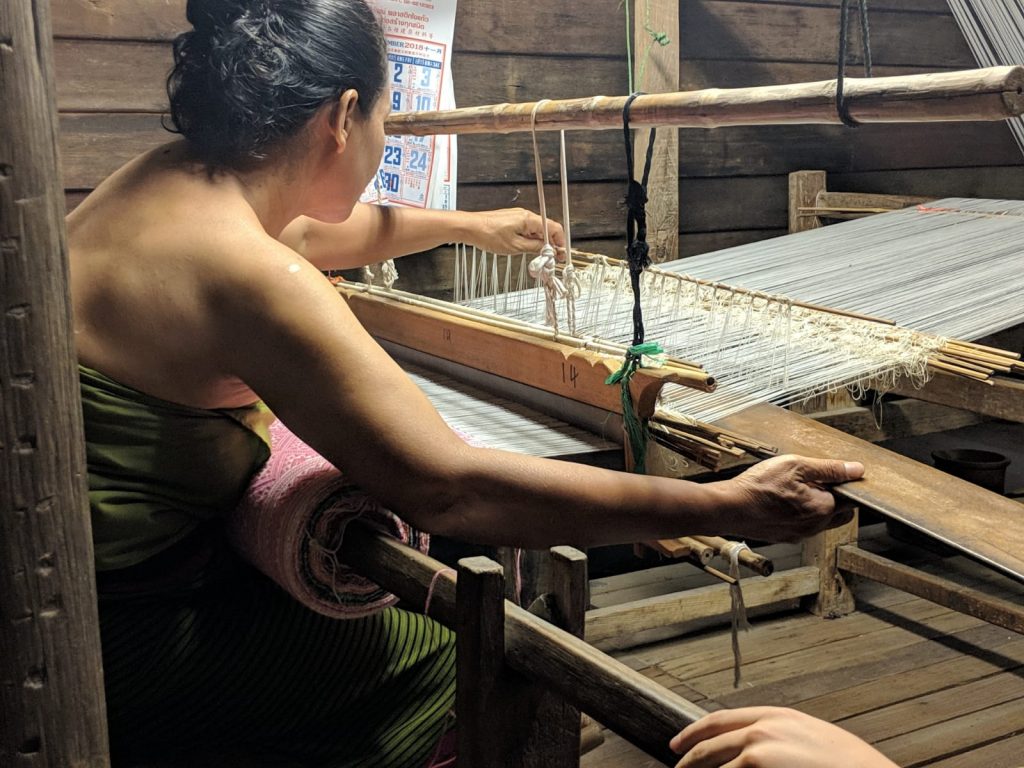We have heard the word ‘sustainable fashion’ way too much recently and still I feel it’s not spoken about enough, hence I m forever looking for opportunities to squeeze it in, in most of my conversations. Sustainable living is key for any societies or countries growth as it ensures that people are not exploiting or putting undue pressure on the natural resources available. Across the world, we have seen people encouraging car pooling to work, or taking public transport when one can ditch personal vehicles, altering their way or methods of energy consumption for example using solar panels and many have given up meat in order to reduce their carbon footprints. Responsible humans are now being aware of the detrimental effects their actions can have on the future of this earth. Global warming and climate changes in recent times make it impossible for us to ignore it. Pollution levels, draughts, floods and species going extinct are all blaring signs of this.
Fashion is the other F word I love. Every one of us plays a part in causing these effects and fortunately every one of us can make little changes in our lifestyle, which positively helps the planet. Working in the fashion industry gave me an insight of how huge an impact we have on global warming.

According to the UN, the fashion industry, including the production of all clothes which people wear, contributes to around 10% of global greenhouse gas emissions due to its long supply chains and energy intensive production. The industry consumes more energy than the aviation and shipping industry combined. Fashion diet is important to ensure that our landfills are not filled with clothing. If the global population rises as expected to 8.5 billion people by 2030 and the GDP per capita grows at 2% per year in the developed world and 4% in the developing world, GFA and BCG project that the overall apparel consumption will rise by 63%, from 62 million tons today to 102 million tons in 2030-an equivalent of more than 500 billion T-shirts. We surely do not need these many shirts to be produced but fast fashion brands will make sure they produce in excess and entice consumers to purchase more than they really require. We as consumers of fashion, play a key role in controlling the effects that it might have on the environment.
So how do we curb this desire to own the latest styles in trend this season? How do we make sure that we are not feeling distressed by looking at our cupboards and feeling yet again, we have nothing to wear?
I have mostly kept the below points in mind before buying new clothes and accessories:
Count Your Intake
Just like counting your calories it’s important to keep track of the stock you already have in your wardrobe. You will be surprised to find those old gold hidden deep in the shelves of your cupboards. This gives us clarity on the key items missing. Once the inventory is counted, I go to shop only for those items that I really require or missing from my wardrobe. This helps me not to double up similar kinds of clothes too.
Less Window-Shopping
Who doesn’t love to walk around the beautiful malls admiring the beautiful window displays of those stores? Its all good up to the point where we get impulsive and just buy that pretty looking shirt or dress. Why go to the cake shop when we are trying to eat greens for a week? I have unsubscribed those emails and unfollowed those hashtags on Instagram too, which might tempt me to take a look at their new collection.
 Buy Less And Buy Organic
Buy Less And Buy Organic
There is no exact number to indicate how many pairs of jeans or saris a person needs hence it is up to the persons discretion as to how much he wants to buy and how often he wants to buy clothes and accessories. Not making those impulsive purchases, not shopping at sales or the discounted prices helps me to not hoard clothes. Buying organic which means natural fibers also helps me to contribute positively affect the environment. I strictly say no to polyester clothing. Focusing on quality rather than quantity is key hence I like to increase longevity of the garments by taking proper care of them for eg. I always make sure to dry clean my linens, silks and wools.
Share and Rent
Being a 90’s kid I have been familiar to the idea of borrowing from thy neighbours. This idea helps connect with friends by opening up your wardrobe and asking them if you could borrow clothes for a particular event or day. We spend so much on new clothes for our graduation day or that wedding party. Instead it’s a good gesture to just borrow that gorgeous sari your friend has stopped wearing and if you are not lucky with those fashionable friends and relatives, just try renting. There are some superb renting sites these days that have designer wear for very affordable prices.
Ditch That Credit Card
Putting those bills on that card can be really deceiving sometimes as we don’t tend to keep a track of monthly shopping bills spent only on clothes. Hence I always take cash when I go out to shop. Doing this helps me to shop within my budget and keeps my habit of splurging in check.
Delaying That Purchase You Want To Make Online
On-line shopping has been my friend for a long time and it’s my favorite pastime too. The way I tackle my urge to not end up shopping online is by sleeping on it. I put things in the cart, in the hope to come back to it later in the day or the next day. It helps me see if I am really in love with those clothes or was just getting swayed by the lovely colours or design that no longer attract me a day later.
Reintroduce Needle And Thread Into Your life
Many a times I have discarded clothes that have a button missing or the stitches have come undone. Rather than letting go of a perfect dress purely because of a missing button seemed unfair to me so I would sew a button on it and it would be as good as new. You really do not need to have the same matching button as the rest. It’s in trend to have one button different from the others.
Buying From Thrift Or Vintage Stores
I love thrift and vintage shopping when it comes to fashion and home décor. You could really get lucky sometimes and find those hidden gems. Mostly these stores work with NGOs and the profits go to some charity that they affiliated with. I don’t miss to walk into a thrift or vintage store if I come across any that is.
Shopping For The Future You Might Be Risky
Buying clothes in the hope to fit into them one day has never worked for me. It generally goes for a waste. Buy sizes that fit you today.
Recycle And Upcycle
The last thing to keep in mind is how we dispose our clothes. Recycle old clothes by donating or dropping it off at stores. Some stores like H&M collect old clothes and give you points that you could later use in store.
I also love to upcycle my clothes. My mother’s old saris become my new skirts; my old denims are reused to make patchwork cushion covers. You could go all creative with the idea of reusing old fabrics.
These helped me shop sensibly and my endeavor continues in creating a good shopping habit in me. Its important to be grateful for what you have and the feeling of gratitude also comes when you realize you are doing your bit to help the planet.
(The writer is a fashion buyer based in USA. The views are personal)



